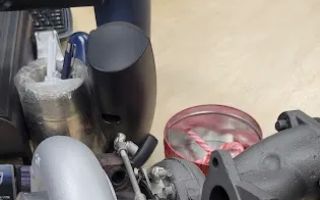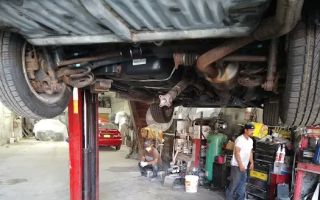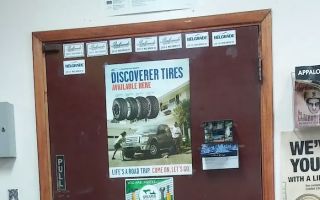Flat Tire Repair for Cars on Highways: A Step-by-Step Guide
Driving on highways can be both exhilarating and nerve-wracking, especially when you find yourself facing a flat tire in the middle of nowhere. Whether it’s the result of a nail, sharp object, or just a sudden loss of air pressure, a flat tire can happen when you least expect it. If you've ever found yourself stranded on the side of the road with a flat tire, you know how important it is to act quickly and efficiently. In this guide, I'll walk you through the entire process of how to repair a flat tire on a highway, step by step, to get you back on your way safely and swiftly.

MR. TIRE INC.
2078 New York Ave, Huntington Station, NY 11746, USA
1. Stay Calm and Assess the Situation
The first thing you should do when you realize that you've got a flat tire is to stay calm. It’s easy to panic, especially if you're on a busy highway. Take a deep breath and assess your situation. Do you have enough space on the shoulder to safely pull over? Are there any signs of debris or other hazards around you? If it’s safe to do so, gradually slow down and pull over to the side of the road, away from traffic.
Once you’ve stopped, put on your hazard lights to alert other drivers. This is crucial for your safety as well as the safety of others. If possible, try to park your car on a flat, stable surface. Avoid parking on an incline or near curves, as it could make the process of repairing the tire more difficult and dangerous.

MR. TIRE INC.
2078 New York Ave, Huntington Station, NY 11746, USA
2. Gather Your Tools and Equipment
Before you get started with the repair, you’ll need to gather a few essential tools. It’s always a good idea to have a tire repair kit in your vehicle, but if not, here’s a list of basic tools you’ll need:
- Spare tire - Make sure your spare tire is properly inflated and in good condition.
- Car jack - This will be used to lift your vehicle off the ground.
- Lug wrench - You’ll need this to remove the lug nuts from your flat tire.
- Wheel wedges - Placing these behind the tires that remain on the ground will prevent the car from rolling while you work.
- Flashlight - If it’s dark or if you're working during the night, a flashlight is invaluable.
- Gloves - Protect your hands from dirt and grime while you work.
If you don’t already have these items, it’s time to consider adding them to your emergency car kit. You don’t want to be stuck in a situation where you’re unprepared.
3. Remove the Flat Tire
Once you have everything you need, it’s time to get to work. Follow these steps to safely remove the flat tire:
- Secure the car - Place wheel wedges behind the tires on the opposite side of the flat tire. This will prevent the car from rolling while you're working on it.
- Loosen the lug nuts - Before raising the car, use your lug wrench to slightly loosen (but not remove) the lug nuts on the flat tire. Turn them counterclockwise, but don’t fully unscrew them just yet.
- Lift the car - Position the car jack under the frame of the car (check the owner's manual for the proper location). Raise the car until the flat tire is off the ground.
- Remove the lug nuts and flat tire - Now that the car is lifted, use your lug wrench to completely remove the lug nuts. Once they’re off, take the flat tire and set it aside.
4. Install the Spare Tire
Now that the flat tire is off, it’s time to replace it with the spare tire. Here’s how to do it:
- Position the spare tire - Carefully lift and align the spare tire with the wheel bolts. Make sure it fits snugly onto the hub.
- Hand-tighten the lug nuts - Once the spare tire is in place, put the lug nuts back on and hand-tighten them. This will secure the spare tire while you lower the car back to the ground.
- Lower the car - Slowly lower the car back to the ground using the jack. Once the tire touches the ground, remove the jack.
- Tighten the lug nuts - Use your lug wrench to tighten the lug nuts in a criss-cross pattern. This ensures that the tire is evenly secured. Don’t forget to tighten them firmly, but don’t overtighten them.
5. Double-Check Your Work
Before you drive off, double-check everything to make sure it’s done properly:
- Ensure that the lug nuts are tight.
- Check that the spare tire is properly inflated.
- Make sure your car is stable and secure.
If everything looks good, you’re ready to hit the road again. Be sure to drive cautiously, especially if your spare tire is a temporary one. These types of tires are not designed for long-distance driving, so it’s a good idea to get your flat tire repaired or replaced as soon as possible.
6. Getting Professional Help
If you find that the damage to your tire is too severe to repair on your own, or if you’re not comfortable performing the repair, it’s always best to call for roadside assistance or a tow truck service. Many towing companies offer flat tire repair services, and they’ll be able to quickly get your car back on the road.
Some tow companies even offer emergency tire repair services, meaning they’ll come to you and repair or replace your tire on the spot. This can be a huge time-saver if you’re stranded in an inconvenient location, such as a busy highway or remote area.
7. Preventing Future Flat Tires
To avoid dealing with flat tires in the future, there are a few simple steps you can take to maintain your tires and keep them in good condition:
- Regular tire maintenance - Check your tire pressure regularly, as underinflated tires are more prone to damage. Ensure your tires are properly aligned and rotated every 6,000 to 8,000 miles.
- Avoid road hazards - Try to avoid driving over sharp objects, potholes, and other debris that could cause a puncture or blowout.
- Check for wear and tear - Inspect your tires regularly for signs of wear or damage. If you notice any issues, get them repaired or replaced as soon as possible.
Taking these steps can significantly reduce the likelihood of a flat tire and keep your vehicle running smoothly for years to come.




























